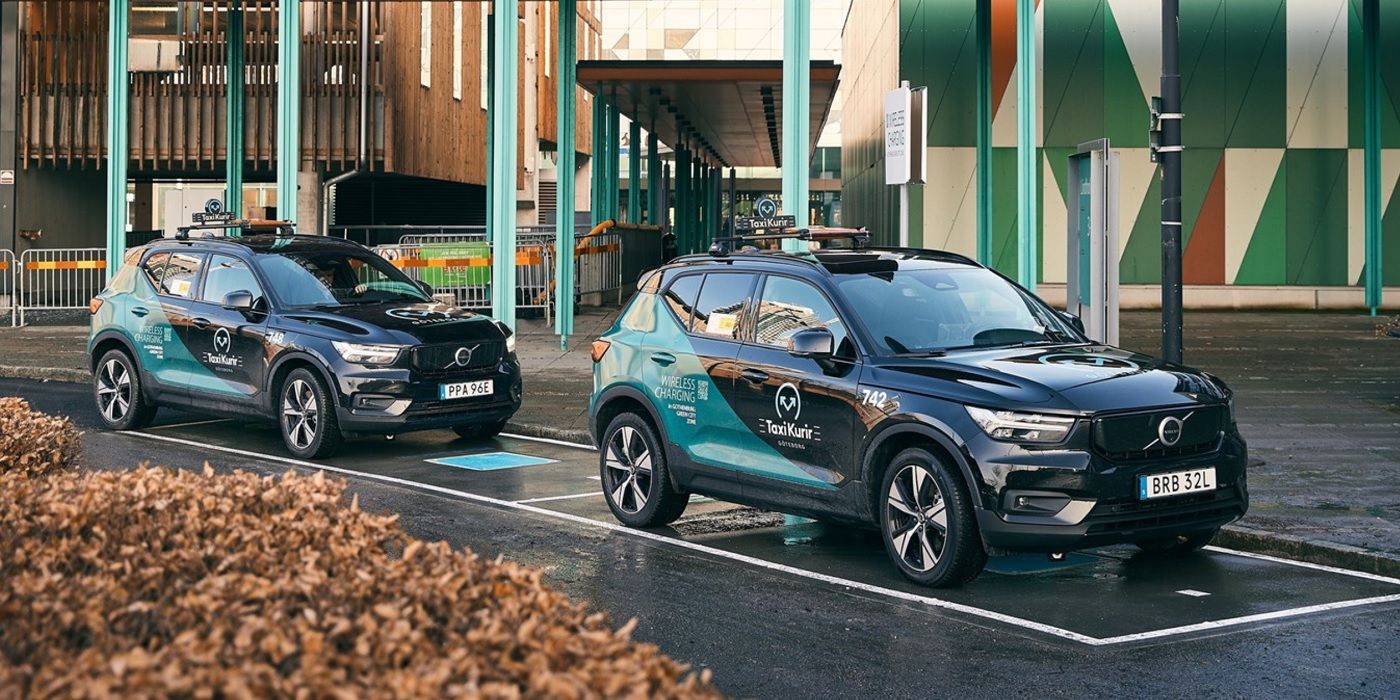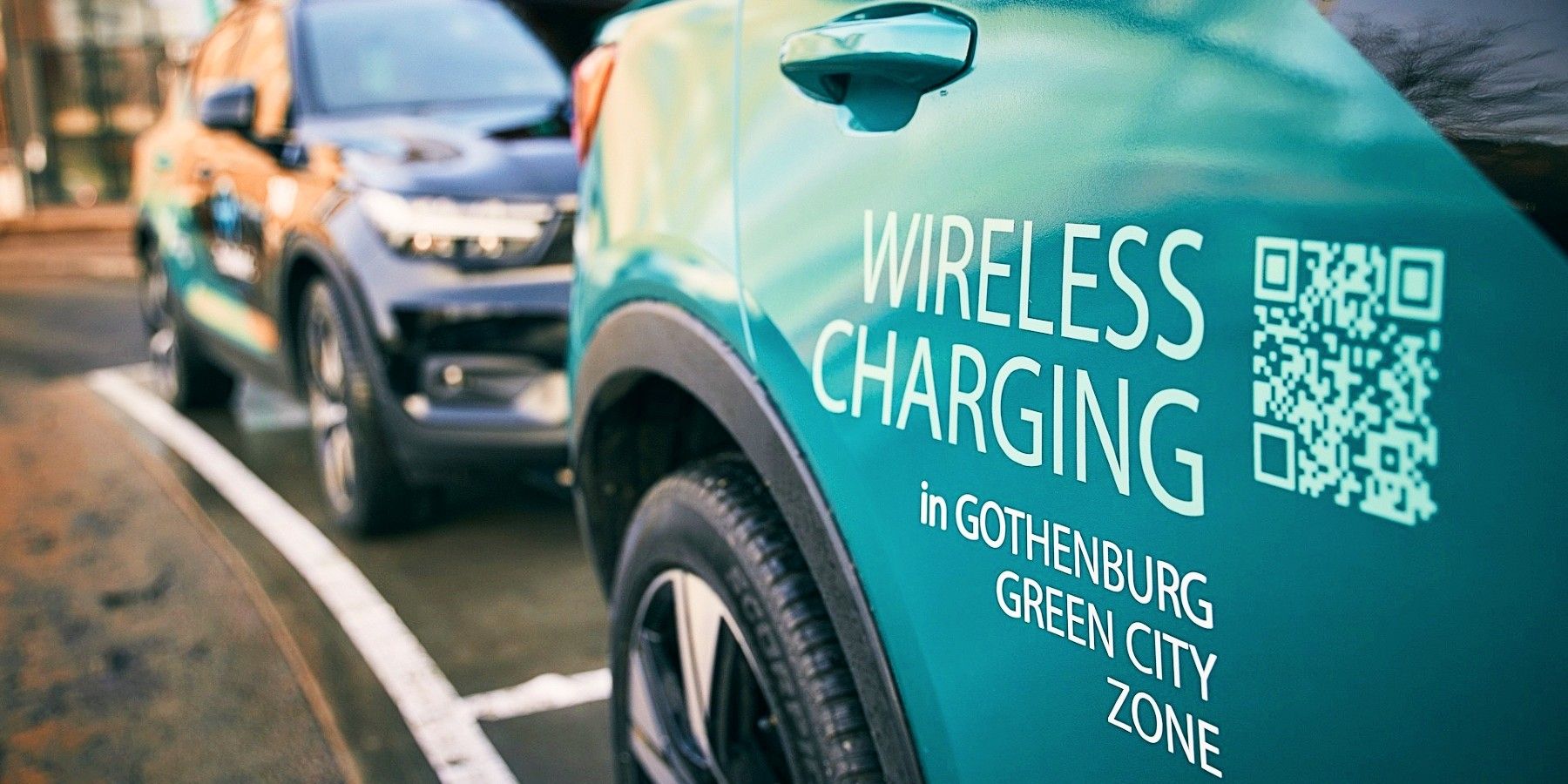Volvo is testing a charging solution in Sweden which could eventually lead to the ability to park an EV and drive away at a later time with a fully charged battery. Wireless charging technology has already been applied to smartphones and many other devices with plenty of success. However, wirelessly charging an electric vehicle, given the size and performance of its battery, is a significantly harder challenge.
EV car batteries are modified lithium-ion batteries with a similar design to those used for laptops and electronic devices. These batteries are chosen for their high energy density and longer life cycles, but do vary in resistance, charging speed, and duration. When it comes to smartphones, the lithium battery can be charged wirelessly by simply placing it on a pad, using a process known as inductive charging, and a similar process is now about to be tested with EVs.
Volvo has announced that it will begin testing wireless charging stations in Sweden, with the test program set to last three years. The wireless chargers will provide 40 kilowatts of power which is about the same as most wired DC fast chargers. Using a fleet of fully electric Volvo XC40 Recharge taxis from the largest taxi operator in the Nordic region, the cars will automatically be charged once parked on a charging pad. The EV taxi fleet will be driven for 12 hours per day with a view to covering 100,000 km each year. The test will determine performance, endurance, and future commercial adaptations.
Not The Only Wireless EV Charger In Town
Volvo is far from being the first company to test wireless EV charging systems. For example, a company called Genesis has an SUV model that can be wirelessly charged, and BMW has been testing the tech for years. However, some have gone even further by imagining a world where an EV is charged just by driving on the highway. Last year, the Indiana Department of Transportation announced plans to build the first contactless wireless-charging concrete pavement highway. Working with Purdue University and other partners, the goal is to turn a stretch of the interstate highway into a wireless charger. Michigan also recently announced a similar project.
The government of Michigan awarded its first wireless EV charging road system contract to Electreon. One mile of road in Detroit will eventually be turned into a wireless charging public road. EVs will then be able to charge while on the go, in slow-motion traffic, or when stationary. Outside of the US, the UK, Norway, and other countries in Europe are also investing in EV charging roads as well. As the future of mobility continues innovating with disrupting technology, where to charge an EV could soon become a worry of the past.
Source: Volvo, Michigan Gov., Indiana Transport


